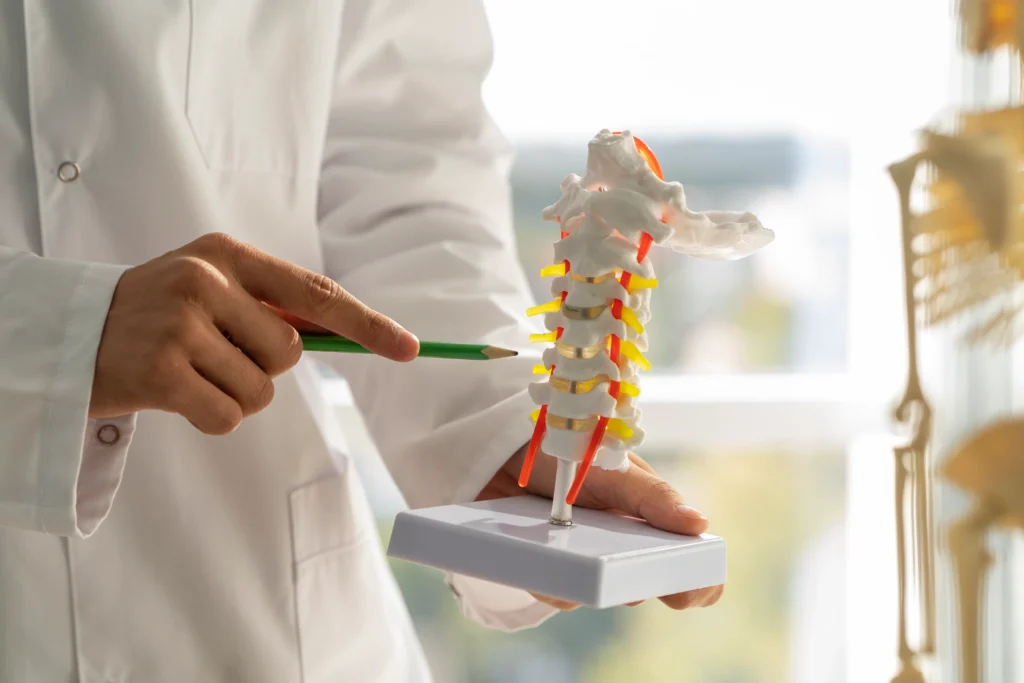Individuals of all ages, from infants to adults, can be affected by spinal cord problems which can take many different forms and result in serious health issues. Spina bifida, tethered spinal cords, and spinal cord abnormalities are examples of congenital diseases that can cause spinal cord issues in infants. These disorders can cause anomalies impacting the spinal cord’s structure or function and arise during fetal development. Infants may experience developmental delays, bowel or urine problems, and weakness or paralysis in their legs.
Adults may experience spinal cord issues as a result of vascular disorders, tumors, degenerative diseases, infections, or traumatic accidents. Traumatic injuries, including those from falls or accidents, can harm the spinal cord and result in paralysis or loss of feeling below the site of the injury. Herniated discs and spinal stenosis are two degenerative disorders that can compress the spinal cord and cause pain, paralysis, or numbness in the extremities.

Spinal cord problems can significantly affect a person’s mobility and quality of life at any age. When treating spinal cord injuries in infants and adults, a multidisciplinary team that includes orthopedics, physical therapy, neurosurgery, and rehabilitation is frequently used. Surgery to correct anatomical anomalies, medicine to control pain or inflammation, and rehabilitation therapy to enhance function and mobility are among possible treatment approaches.
For spinal cord disorders to maximize results and minimize long-term effects, early identification and management are essential. For those with spinal cord injuries, close observation by medical specialists, many follow-up appointments, and continuous assistance are necessary to guarantee that they receive complete treatment catered to their unique requirements and circumstances.
Children with spinal cord disorders may exhibit a range of symptoms, such as:
- Weakness or paralysis in the limbs
- Loss of sensation
- Bowel or bladder dysfunction
- Developmental delays
- Difficulty walking or balancing
Children with spinal cord problems may benefit from the following treatments:
- Surgery to correct structural abnormalities or repair spinal cord injuries.
- Medications to manage symptoms such as pain or inflammation.
- Physical therapy to improve strength, mobility, and coordination.
- Occupational therapy to enhance daily living skills and independence.
- Assistive devices such as braces, wheelchairs, or walkers to aid mobility.
- Ongoing monitoring and follow-up care to assess progress and adjust treatment as needed.
The management of spinal cord problems in children and the improvement of their outcomes depend heavily on early detection and intervention. To provide complete care suited to the child’s unique needs and circumstances, a multidisciplinary approach comprising pediatric neurologists, neurosurgeons, orthopedic surgeons, and rehabilitation specialists is frequently required.

